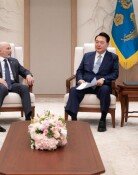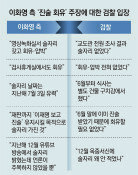Attempts to cut lawmakers privileges end up like a flash in the pan
Attempts to cut lawmakers privileges end up like a flash in the pan
Posted August. 26, 2014 01:24,
Reform was the hot topic in politics in 2012 when both the presidential election and general elections took place. Both ruling and opposition parties competitively renewed their determination for reform, saying, Well take down our privileges as lawmakers. A series of reformative ideas gushed out: a ban on lawmakers from holding more than one office, stronger punishment of violence at the parliament, the principle of no work, no pay, and abandonment of lawmakers privilege of exemption from apprehension. Few, however, has been put executed.
The Dong-A Ilbo and Citizens United for Better Society, a civic group, studied all of 245 bills sponsored to the Steering Committee of the National Assembly from the beginning of the 19th parliamentary session and Aug. 8 and found that only 30 bills contained the takedown of lawmakers privileges.
Of them, only five bills or 16.7 percent have passed the plenary session, including a revised bill on the National Assembly Act, which bans a lawmaker from holding more than one office, and a revised bill on the Act on Promotion of the Constitutional Government Society of the Republic of Korea, which limits the lawmakers pensions starting from the lawmakers of the 19th parliamentary session.
Eight out of 25 bills were abandoned because they were similar to other bills. In other words, 17 bills or 56.7 percent have been dormant for about two years since the submission to their respective standing committee.
During the same period of time, 33 bills on punishment and disciplinary actions of lawmakers and a screening process sent to the Special Committee on Ethics were called up, but 32 of them have not passed the plenary session while one was withdrawn. This means that there is no willingness to discipline lawmakers illegal activities.
It would be too much to consider a system that is to protect lawmakers legislative activities as a privilege. However, it is over the top that Korean lawmakers receive taxpayers money even if they do not attend their standing committee in contrast to lawmakers in other countries. The Belgian parliament fines lawmakers who do not participate in voting in the plenary session and cuts their pay up to 40 percent if they are absent frequently.
The National Assembly is reluctant to pass the bills that reduce lawmakers privileges because both ruling and opposition party leaderships are indifferent and lawmakers are not serious about abolishing their privileges, said Lee Ok-nam, head of politics department of Citizens United for Better Society. They cannot regain trust just by repeating their slogans to take down their privileges before elections.







